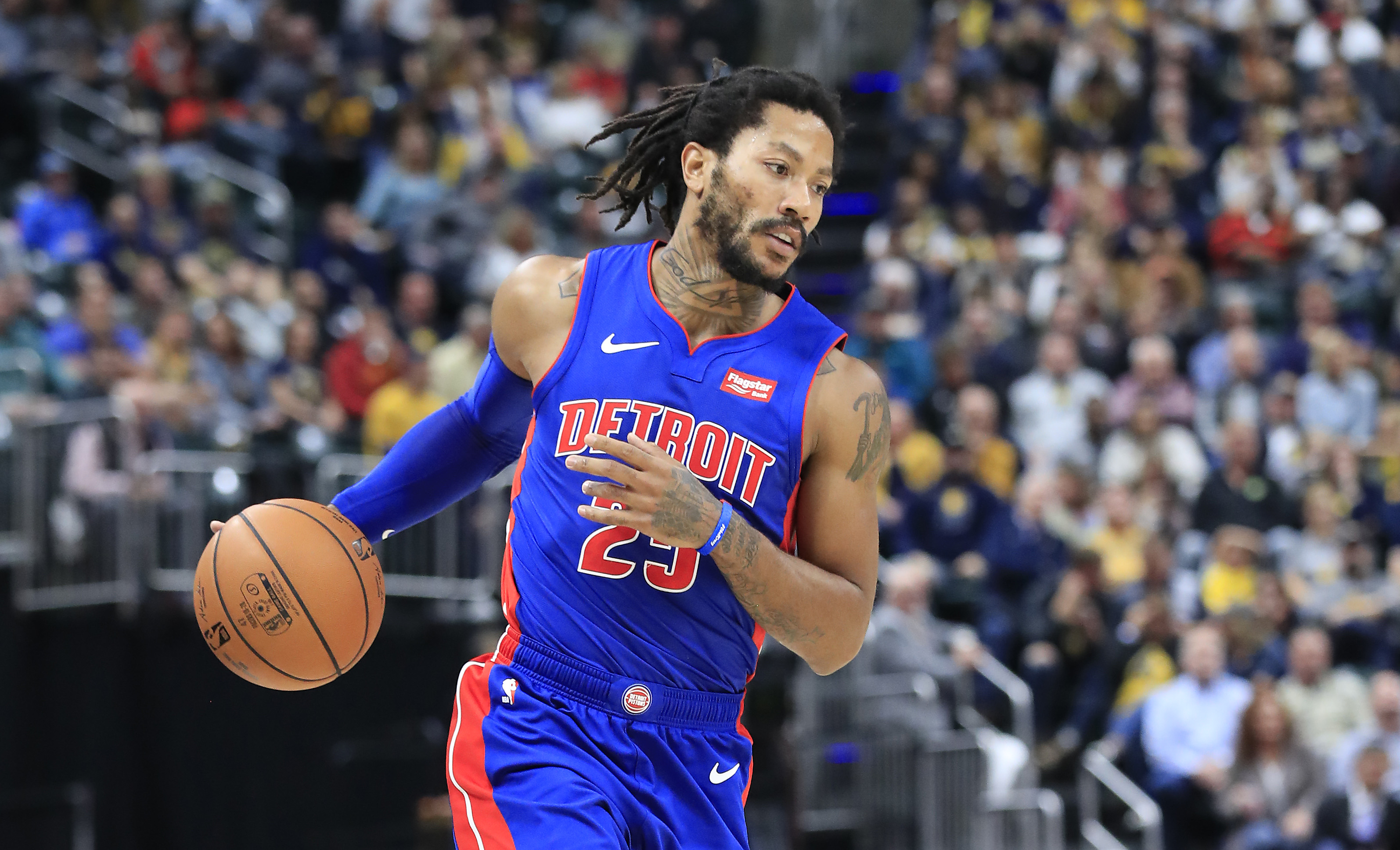
INDIANAPOLIS, INDIANA – OCTOBER 23: Derrick Rose #25 of the Detroit Pistons dribbles the ball against the Indiana Pacers at Bankers Life Fieldhouse on October 23, 2019 in Indianapolis, Indiana. Andy Lyons/Getty Images/AFP
Former NBA Most Valuable Player Derrick Rose says he might still be fit and playing for the Chicago Bulls today had the “load management” philosophy been used when he was on the court.
“It was just a different time in the sports world, period,” Rose told NBC Sports Chicago ahead of his current team the Detroit Pistons’ clash with his old side on Wednesday night.
“Now we have the term ‘load management’ … if load management would have been around, who knows, I probably would have still been a Chicago Bull right now.”
Rose, 31, was a star playmaker for his hometown team the Bulls, becoming the league’s youngest-ever MVP while with Chicago in 2011.
But he tore a knee ligament in Chicago’s opening game of the 2012 playoffs and missed the entire 2012-13 season, before suffering a right knee injury that ruled him out for most of the following campaign.
Rose would endure another knee injury before he was traded to the New York Knicks in 2016, and in April of 2017 underwent knee surgery for the fourth time in his career.
During his Bulls years there was no template for what’s now known as “load management” — sitting players who are largely fit but perhaps more fragile to ensure their continuing productivity through the punishing 82-game regular-season and, hopefully, deep into the playoffs.
It was a technique pioneered by the San Antonio Spurs to make the most of their veteran superstars Tim Duncan, Manu Ginobili and Tony Parker.
Since then teams have used it to preserve the health of players who carry a heavy load like LeBron James, or have suffered serious past injuries like Joel Embiid.
This season the Los Angeles Clippers have been extra cautious with star Kawhi Leonard, resting him for multiple games because of nagging knee issues.
The Clippers, who signed Leonard prior to the season, are continuing a strategy that paid dividends for the Toronto Raptors last season, when Leonard led the club to their first NBA title.